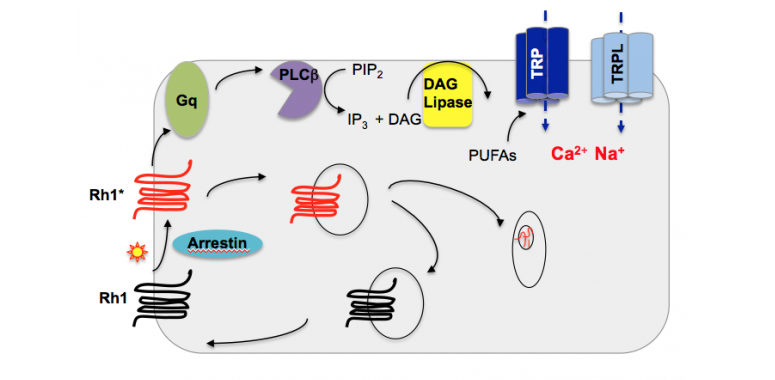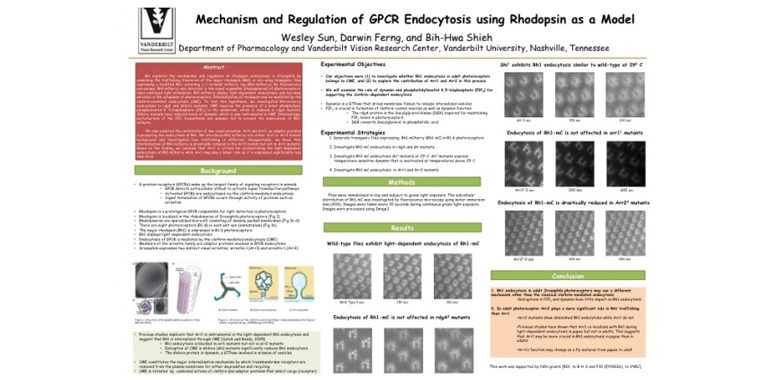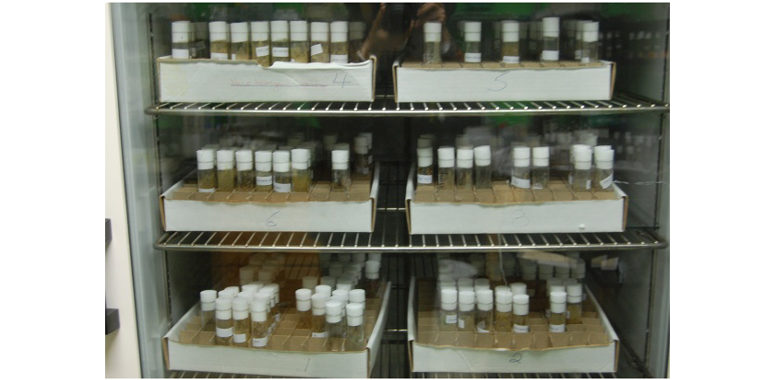G-protein coupled receptors (GPCR) are responsible for detecting extracellular signals and are critically involved in human physiology and pathophysiology. GPCRs represent a diverse class of receptors with about 1000 members in the human genome. The activity of each GPCR is tightly controlled to ensure temporal and spatial resolution of the signaling response. We are interested in the regulation of GPCR using a prototypical GPCR, rhodopsin, as our model. Specifically, we are investigating the trafficking of rhodopsin in Drosophila photoreceptors. Our research interests also include
- Genetic dissection of the visual signaling
- Regulation of signaling by scaffolding protein
- Mechanisms of retinal degeneration
- Regulation of light-dependent rhodopsin internalization
Our experimental strategies consist of a multi-disciplinary approach including molecular, cell biological, biochemical, and genetics methodologies for insights into the mechanisms and protein networks that orchestrate endocytosis and trafficking of rhodopsin in Drosophila photoreceptors. Knowledge about how the activity of GPCRs can be regulated will be exploited for potential pharmacological intervention.


